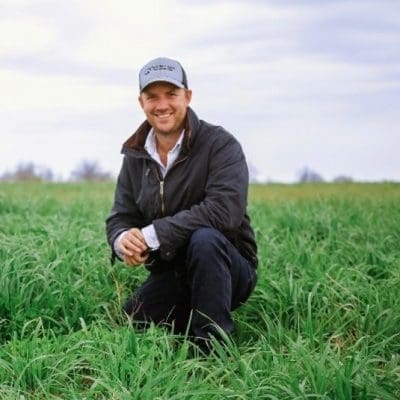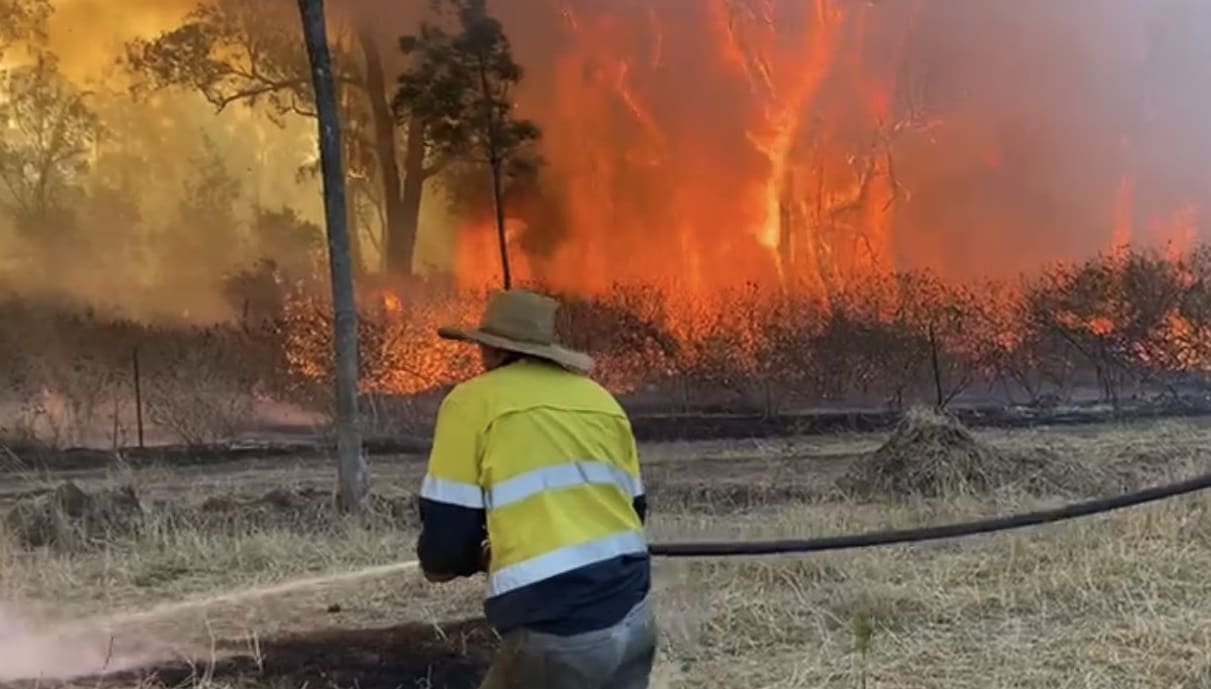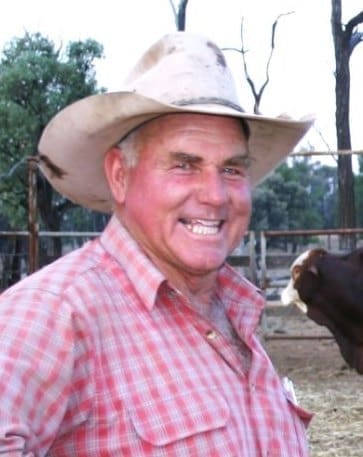WITH bushfires a hot topic of discussion this year, the old issue of high fuel loads on public land and bureaucracy stalling hazard reduction burns is starting to show its face again.
Large parts of New South Wales and Queensland are facing an increased risk of fires with a dry summer forecast and plenty of fuel grown in the past three wet years.
Fires have well and truly started in the Northern Territory, with a monster blaze in the Barkly region burning for the past month.
The ‘black summer bushfires’ of 2019-20 are fresh on the minds of many, including the Federal Government which earlier this month held a ‘bushfire preparedness summit’ to discuss the response to potential fires.
While the rhetoric has ramped up, Beef Central has spoken to several landholders who say some of the underlying issues with red-tape and under-resourced public land are not being addressed.
John Burnett owns Frankfield Station near Clermont which also borders a national park that has had fires in it over the years.
Mr Burnett said red tape was making it hard to take advantage of opportunities to reduce fuel loads.
“We had a situation the other day where our Fire Warden could not issue permits because someone had called a total fire ban, based on the weather forecast,” he said.
“But the weather forecast does not consider the different situations on the ground – you might have logs on cultivation country, you might be in areas neighbouring overgrazed paddocks, which are very different to dry grass in woodland.
“The communities have elected a responsible person to be Fire Warden of their area and they know the intricacies of those areas. I think you need local management rather than statewide management of fire permits, because you might have a situation where it is unsafe to burn in one area and perfectly 50km away.”
Mr Burnett said controlled burning and general management for fire had been part of the family operation for generations.
“When I was a kid, dad used to take us out into the paddock with a box of matches, we would light up some areas and come back a couple of days later,” he said.
“It was very similar to Indigenous burning techniques that are getting so much attention at the moment.”
National Park ready to burn
Cattle Australia interim chief executive officer and director Adam Coffey has been dealing with fires most years since he and his wife Jacynta purchased a station beside Qld’s Bulburin National Park.
 “We are always apprehensive about the park, there has been no hazard reduction, it hasn’t burnt for the past couple of years and there have been fires all around us for the past month,” Mr Coffey said.
“We are always apprehensive about the park, there has been no hazard reduction, it hasn’t burnt for the past couple of years and there have been fires all around us for the past month,” Mr Coffey said.
“It will burn again when the weather turns bad, if it is not this year it will be next year, and who is liable if it takes our operation out?
“I have spent two months away from our business fighting fires in the park without laying eyes on anyone from Parks & Wildlife service.”
Mr Coffey said he had been listening to commentary from the Federal Government on bushfire preparedness and was frustrated by the lack of focus on reducing fuel loads.
“Surely, the fire preparation money would be better spent in hazard reduction and giving us the tools to do that, rather than waiting for all hell to break loose and water bombing it with helicopters,” he said.
“I don’t understand how we have come to a point where we are talking so much about biodiversity and we don’t want to do hazard reduction burns. I don’t know if they are scared of litigation or what the problem is, but in our situation I would rather they had lit park up a couple of months ago than waiting for a bigger blaze at a later time.”
NSW farmers facing similar issues
Dubbo-based broadacre mixed farmer Tracy Blackburn said producers in New South Wales were facing similar issues to the ones being raised in Qld. Ms Blackburn is also the NSW Farmers Dubbo-branch president and part of the Rural Fire Service.
 “We are still having a lot of situations where we are not putting fires through areas that need regular burning,” she said.
“We are still having a lot of situations where we are not putting fires through areas that need regular burning,” she said.
“We have a big area close to Dubbo here, which is a mix of private and public land, where we all know that if it gets a lightning strike on those hills it will seriously burn. It has a lot of trees on it and there has been no fire through that area in years.”
Ms Blackburn said part of the issue was trying to get governments to recognise the need for regular fire through Australian landscapes.
“Obviously all landholders need to be aware when they can and cannot burn, but we do see many cases of public land not being managed for fire and carrying some big blazes as a result,” she said.
“When it comes to hazard reduction burns on public land, there is always talk about saving the koala or disrupting habitats but we need to face the fact that we need fire.
“Aboriginals were very good at their cool burns through the winter and it feels like our European mentality is still dominating, where we want to save everything and have no fire. But the fact is we need fire to manage these habitats.”
Ms Blackburn said the Rural Fire Service used to supply firefighting units to landholders for quick response to fires. She said that service has been scaled back, which had created a divide between official firefighting capacity and the capacity of rural landholders to fight fires.
“A lot of landholders have set themselves up to fight fires, but there are a lot of units that are not registered or recognised by the RFS and it makes it hard for them to work together,” she said.
Minister says states doing everything they can
Federal minister for emergency and agriculture Murray Watt said “The Federal Government engages regularly with State and Territory agencies and governments on preparedness measures, and supports their ongoing efforts to reduce bushfire risks, including where possible through hazard reduction efforts.”
He was recently quoted on the ABC’s Insiders program saying the states were doing everything they can to account for bushfires.
“I know that the states have done everything they can when it comes to hazard reduction, given the incredibly wet circumstances that we’ve been in over the last couple of years,” Mr Watt said.
“I remember it was only a couple of months ago, I was in rural Victoria meeting with volunteer firefighters and they were telling me how difficult it had been to undertake hazard reduction because whenever they went out there, their shoes and boots were literally sinking in the mud. So it has been challenging to be ready on that front.
“But I know that the New South Wales Government has been throwing extra resources at this over the last couple of months to catch up and be as ready as possible. And I read this morning, in fact, that New South Wales is preparing to do more hazard reduction burns even this weekend, now that those temperatures have come down and it’s more safe to do so.
“My understanding is that Queensland, for instance, has actually reached its targets for fuel reduction heading into this summer. But states like New South Wales and Victoria, where we have had incredibly heavy flooding over the last year or so, it has been more difficult.”


